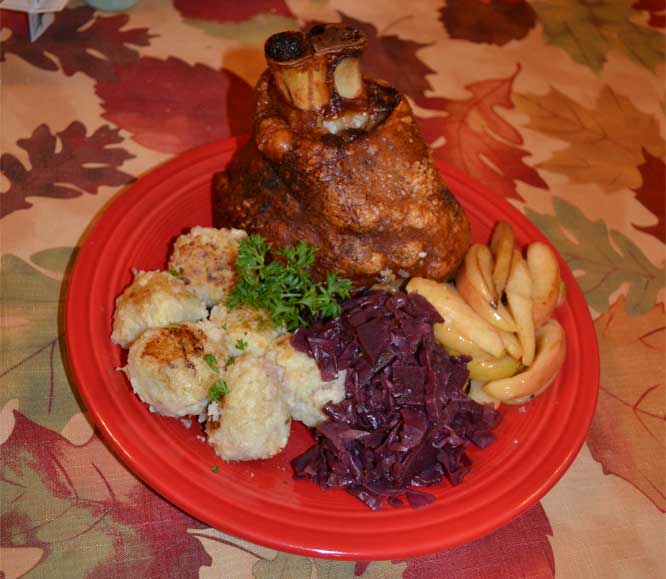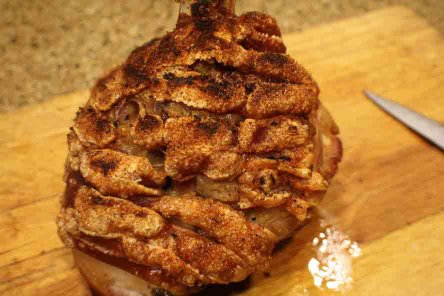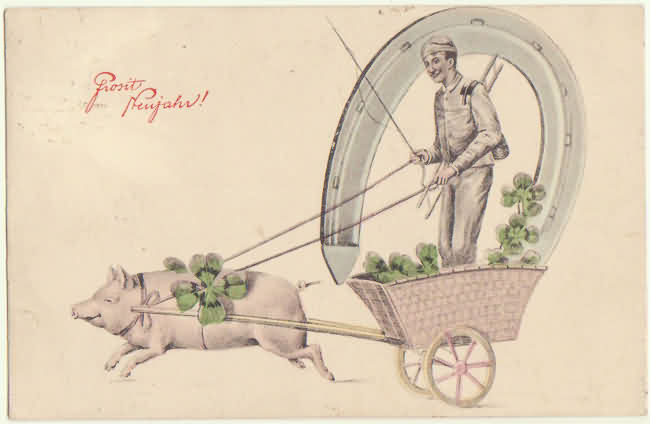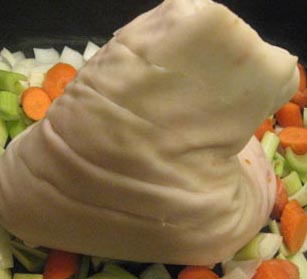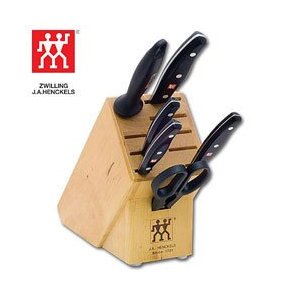The Kitchen Project | History Project | Contact Us | About Us | Free Food History Course | Food History Search
This historically peasant like food has become one of the most celebrated foods of Germany that has become a quinessential part of Oktoberfest in Germany. In the Munich Oktoberfest they sold over 80, 259 Schweinshaxe in 2014! Why is this dish so special?
The pork haxe has all the great elements of slow roasted meat What does the word Schweinshaxe mean ?Schweins = pig, Haxe = Shank or Leg or Knuckle Why Pig over Beef?
A German New Year Card that wishes a good luck with 4 leaf clovers and pigs! Why do some German's
| ||||||||||||||||||||||
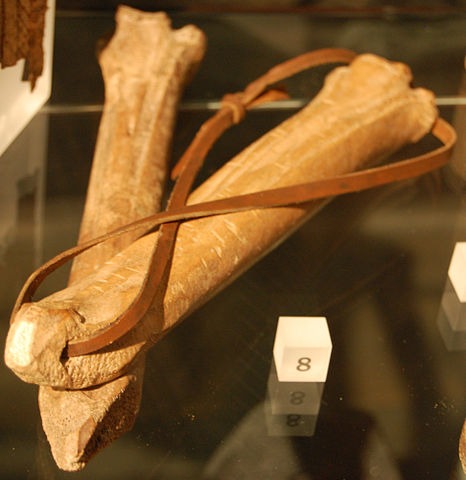
Medieval ice skates made of bone on display at the Museum of London.
Photo by Steven C Johnson
One the bones in this cut is perfect to make ice skates, which
before cars and public transportation was a good way to get around
in winter in Northern Germany.
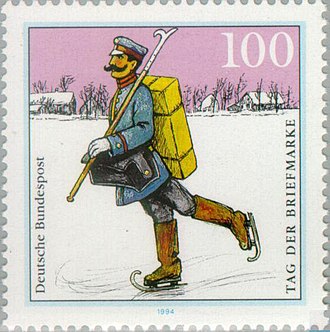
These aren't bone skates but it shows that the postman
use to deliver by skating.
Also goods and services were transported
with the bone skates.
Why Bone?
Because it had a natural waxy substance that made it glide well
on ice.
More about ice skating with bone skates here.
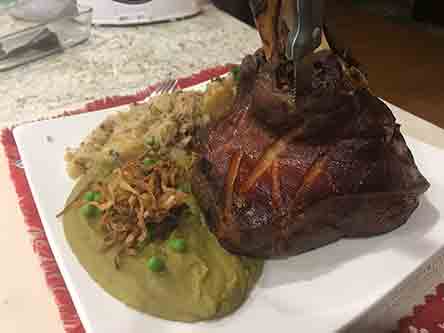
Eisbein is a wonderful dish and made famous by the city of Berlin.
If I was going to get the best their is, I would go to this restaurant in Berlin,
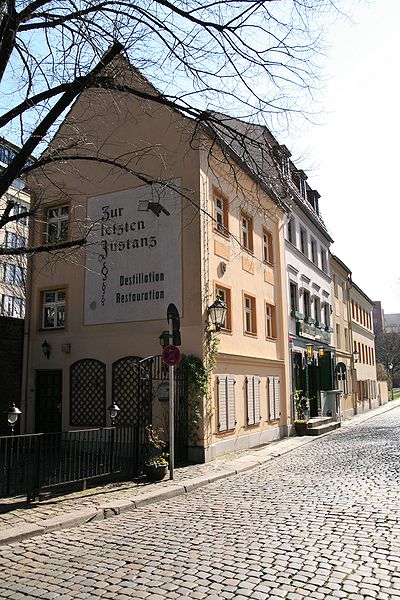
Zur Letzten Instanz the restaurant website and menu.
Interesting,
I heard that in the simmering liquid they use as one of the seasoning agents, blueberries.
Here is a great article obout the restaurant
https The Gaurdian Article about Zur Letzten Instanz
Go to Berlin!
| Booking.com |
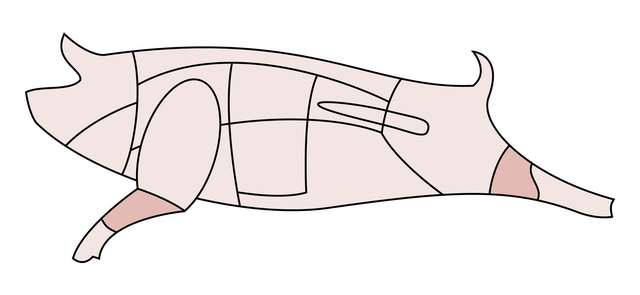
There are 4 haxen on a pig, looks like the forearm and the thigh with bone.
~~~~~~~~~~~~~~~~~~~~~~~~~~~
Recipes
Schweinshaxe
~~~~~~~~~~~~~~~~
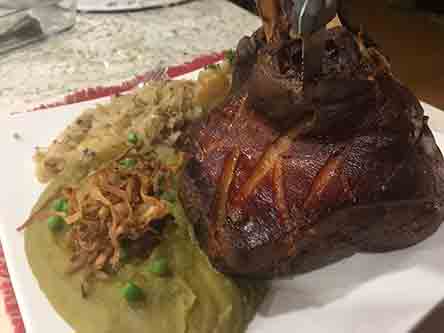
Berliner Eisbein
This is an excellent video showing the great foods at the Munich Oktoberfest, including the Schweinshaxe towards the end of the video. |
Search for Food History Articles
 |
Would love to hear your comments on our Facebook site |
 |
Follow us at the Food History Cafe on Twitter |
More Links and Recipes
| Here is a food history book I recommend |
One of my Food History Books
|
Vanilla Enchantment |
My German Cooking Book
|
Sous Vide |
magic Bullet |
|
Zwilling J.A. Henckels Twin Signature 7-Piece Knife Set with Block |
